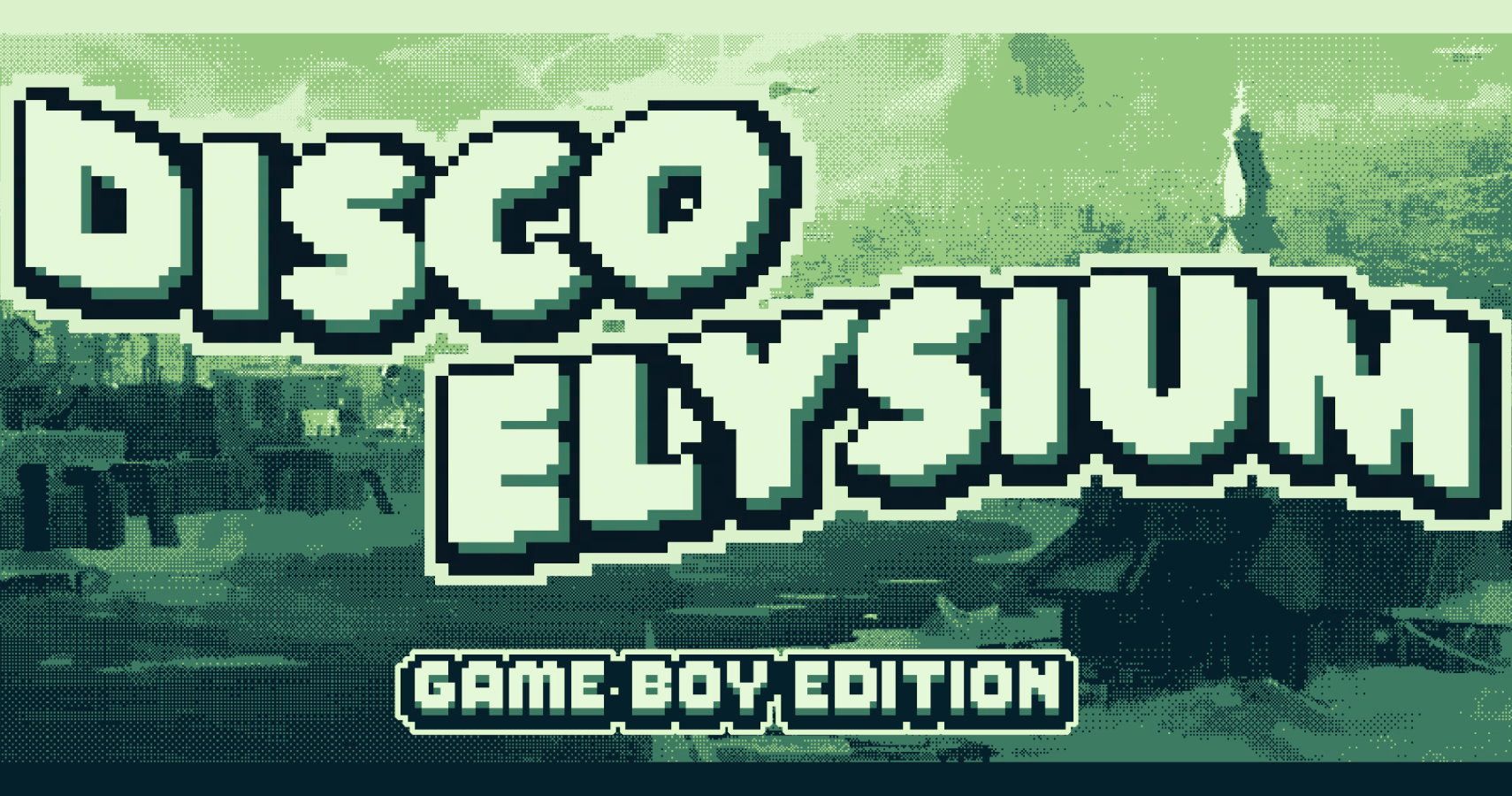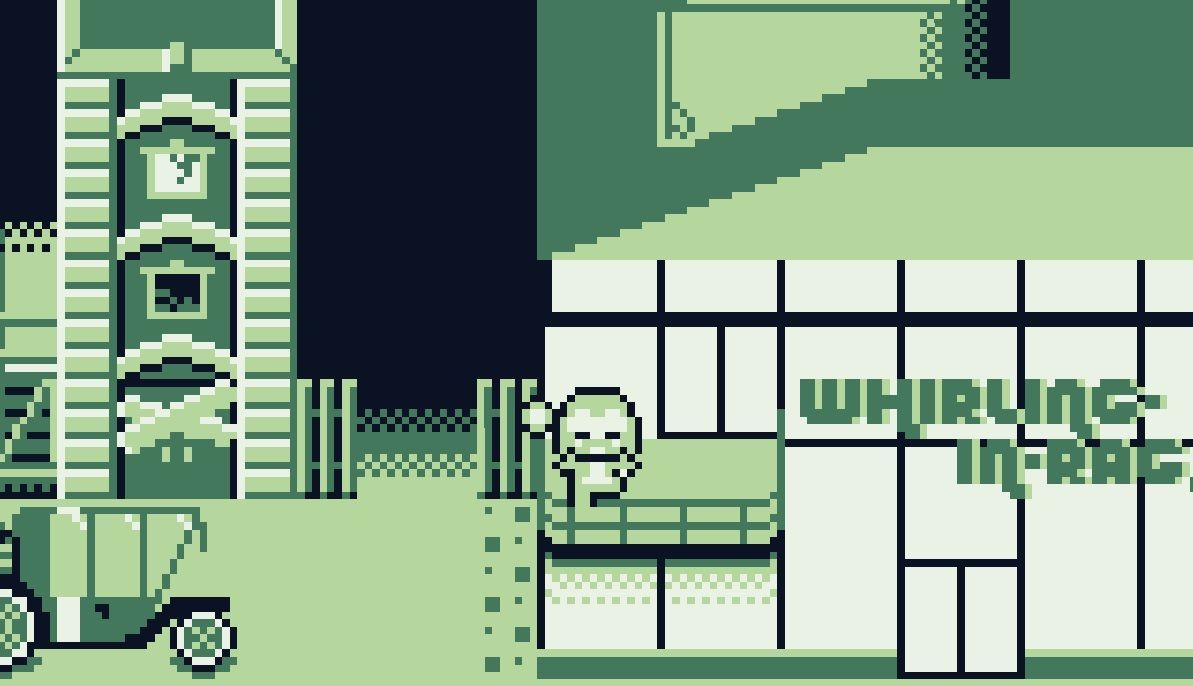Demakes are seeing a resurgence in games; an Elden Ring demake was just announced a couple of days ago, and Bloodborne was also given the fan demake treatment in the form of Bloodborne PSX. Then there’s Disco Elysium, which had been faithfully transported back to the days of the Game Boy, complete with all the technological constraints of the console: the pale green hues, the 8-bit soundtrack, and the compact screen resolution. The detective, too, has been shrunk down to the size of a Game Boy-era Pokemon trainer, as he wakes up in a small hostel room, which is littered with the somewhat sparse debris of his previous drunken night.
There’s a particular charm in Game Boy titles, given that they’re so closely tied to our childhood nostalgia. But it’s also through this Game Boy aesthetic that Disco Elysium, a game known for its elaborate, novel-length dialogue and musings, had been artfully condensed for a more diminutive experience. Aside from being a sheer nostalgia trip for fans, this is also a fascinating experiment in restraint and austerity. Think of this Disco Elysium demake as Disco Elysium-lite, an RPG with the parts of its meat and muscle stripped from its skeleton; what will become of Disco Elysium without the extensive conversations, the thoughtful skill structure that hints at Harry’s fucked up limbic system and sprawling mind palace, and its distinct oil-painting art style? Will it still be as compelling as the original?
The answer, unsurprisingly, is that it loses some of that original Disco Elysium charm. And of course it does; for the sake of fitting the core of the tale into the Game Boy experience, some of the game’s most compelling details have been taken out of the lo-fi demake. Unlike the original, you no longer wake up in a naked stupor, your necktie isn’t hanging dismally from the ceiling fan, and your innermost thoughts are no longer as rambling. Plus, replacing the skill system is a more D&D-influenced system, in which you play a mini-game with a pair of six-sided dice that determine whether the action you undertake will succeed, such as your first attempt to look into the mirror without cringing at your reflection.
But at the same time, the demake is testament to the strength of Disco Elysium’s detective noir tale. In this instance, every feature, object, and even choice of words retained from the original becomes exceedingly crucial to highlighting the game’s overarching mystery and the depths of your broken psyche. This is still a game about the rigours of detective work, even if the familiar camaraderie between you and the various characters has been slightly diluted. Yet the compulsion to learn more about the fractured remnants of the city of Revachol, and the enigma of the dead body hanging in the backyard of the hostel still persist. Kim Kitsuragi, your buddy cop, still takes the news of your ridiculous name, which you’ve invented on the fly due to your amnesia, with the same sense of stoic coolness. What a lad.
Is Disco Elysium better suited as a Game Boy title? Probably not; far too much of its charm has been lost in translation, and this is a game clearly created as a homage. But the demake does invoke an atmosphere that’s different from the original: one that’s marked by its brevity and the smallness of its environments. Despite its short length—it covers probably just the first half an hour of Disco Elysium’s tale—the demake highlights and reminds you of the intimacy of the game’s central murder-mystery, and how it will inevitably embroil and ensnare its characters in all its ugliness and tragedy. If you haven’t played the original, you should come back to this demake after you’re done.


